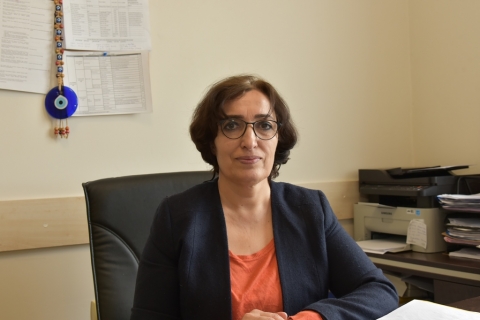Avoid Post-Ramadan Health Risks: Eat Light and Stay Hydrated
Prof. Dr. Pınar Sökülmez Kaya, a faculty member at Ondokuz Mayıs University (OMU) Faculty of Health Sciences, Department of Nutrition and Dietetics, warned against excessive food consumption immediately after Ramadan. She emphasized that the body, which has adapted to fasting for a month, should not be suddenly overwhelmed with food during Eid breakfast, stating:
“During Ramadan, our body undergoes an adaptation process to fasting. As the month ends, we transition back to our regular eating pattern. However, suddenly consuming large amounts of food can lead to serious health risks.”
“The Body Has Forgotten Regular Eating Patterns”
Prof. Dr. Kaya provided insights into post-Ramadan nutrition and the importance of gradual dietary transition. She warned that excessive food intake could lead to spikes in blood pressure, high blood sugar levels, and even heart attacks:
“During this month-long fasting period, our body has adjusted to a different routine and has essentially 'forgotten' regular eating patterns. We now need to re-adapt carefully. If we suddenly start consuming large quantities of food, it can cause high blood pressure, sugar spikes, and increased cardiac load, potentially leading to a heart attack.”
“The Adaptation Process of the Body”
Addressing the proper amount of food intake, Prof. Dr. Kaya advised a gradual return to regular eating habits:
“People are now wondering how to transition back to their regular diet. Just as we were mindful of our diet while adapting to fasting, we must also be cautious while returning to normal eating. The key is to avoid consuming too much food at once. Since our bodies fast throughout the day during Ramadan, we need to adjust to our regular meal patterns.
The ideal approach is to start with three meals—breakfast, lunch, and dinner—with small snacks in between. The best way to begin the day is with a light breakfast with eggs, cheese, and minimal fried or dough-based foods. Tea, milk, or herbal teas like linden can be preferred for beverages.
Family gatherings during Eid will naturally include large feasts. However, the key is to eat slowly and in moderation. Eating too quickly prevents the body from adequately adapting. Instead, meals should be enjoyed gradually while sharing moments with loved ones.”
“Do Not Forget to Stay Hydrated”
Prof. Dr. Kaya also emphasized the importance of hydration and physical activity:
“Our brain signals when we are full, and we must listen to it. Instead of overeating, we should focus on enjoying time with our loved ones. For desserts, lighter options such as milk-based sweets are preferable over syrupy pastries, which should be consumed in moderation. We should also be mindful of social pressure and learn to say ‘no’ when necessary.
Hydration is another key factor. Just as we encourage drinking plenty of water between iftar and suhoor, we now recommend consuming 2-3 liters of water daily to stay hydrated.
Returning to an active lifestyle is now essential for individuals who spent Ramadan in a more sedentary state. We recommend increasing daily movement and focusing on maintaining a dynamic routine to shed any extra weight gained during the fasting period.”


















